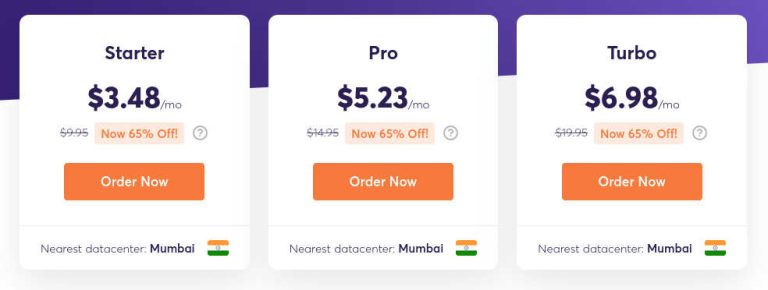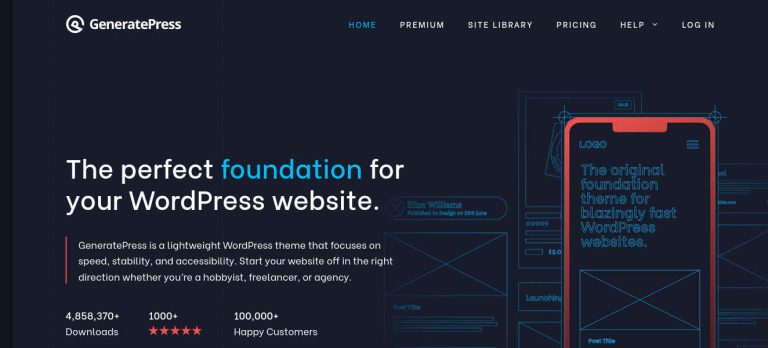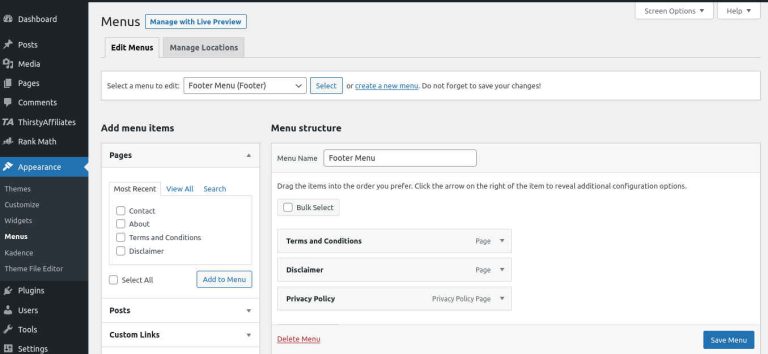How to Start an Author Blog for Your Writing Hobby or Business

Making a living out of writing can be difficult especially when you are just starting out and no one knows you.
You often have to rely on others (your agent, your publisher, etc) to drive your success. But you don’t have to wait for others to determine your success.
You can take control of your success by creating your platform, getting your own readers, and selling your own books.
It may seem like a daunting process but it is quite simple if you get the right knowledge.
In this article, I will show you exactly how a blog can help you in this process. I will:
A quick note: If you are in a hurry to set up your blog, go straight to the technical steps of setting up your blog in my quick start guide on setting up your WordPress blog (step by step).
1. What Is an Author Blog?
An author blog is a blog that writers can use to promote or sell their books or build a community. It is also known as a writer’s blog.
An author blog can have many sections such as a:
- Website: This has important pages like home, contact, and about.
- Blog: This is where you have the blog posts.
- Shop: This is where you can sell your books or courses.
Save Big On Web Hosting


Save Up to 70% by Hosting with ChemiCloud
2. Who Should Start an Author Blog?
Before you start an author blog, you should ask yourself whether you really need one. A blog should enhance your writing journey instead of being a distraction.
Here are the people who will benefit most from an author blog.
- Writing hobbyists. If you enjoy writing as a hobby, a blog can be a great way to get your writing out there without too much effort. It is also a great way to experiment with your writing.
- Aspiring authors. If you are a new author or you want to turn your writing hobby into a business, a blog will help you create a platform from where you can build a community and eventually sell your books.
- Established writers. If you are a successful author, you can use your blog to connect with your audience and share aspects of your life. See Neil Gaiman’s blog to see how he does this with his blog.
3. How Much Does It Cost to Start an Author Blog?
You can start your author blog for about 75 dollars. This includes:
- Webhosting for 1 year (at $60 a year or $5 a month)
- A domain name (at $15 a year)
If you have the budget, you can also choose to have premium WordPress themes and plugins, which will add another $50-100 to these basic costs. However, there are some free alternatives that you can take advantage of (more on this later).
You can also significantly cut down on your costs by choosing a good web hosting company. A company like ChemiCloud, for example, often gives some great discounts from time to time (check for discount). They also give you a free domain name and other freebies.
4. Why Start an Author Blog
If you are a writer or aspiring writer, an author blog can take your writing to the next level. There are many benefits to having an author blog. For example, you can use it to:
- Promote and sell your books. A blog can be a powerful way to sell your books especially if you are a self-published author. Unlike selling on platforms like Amazon, you get to keep 100% of the profits.
- Build a community. You can use your blog to build a following around the topics you write about. You can then get readers to sign up for an email list. This makes it easy to sell your books (if self-published) or get a publishing deal.
- Create additional sources of income. As a writer, it helps to have several income sources. With a blog, you can supplement income from your writing with ads, affiliate marketing, courses, or sponsorships.
- Create a writing habit. If you struggle to write every day, blogging can be a way build practice your writing skills. With blogging, you can get quick feedback from comments or through analytics.
- Curate and test book ideas. Blogging helps you to quickly record and curate ideas that come to you. You can later turn the ideas that do well as blog posts into books or chapters in your book.
- Readers to get to know you better. You can use your blog to connect with your audience at a deeper level by sharing your opinions, lifestyle, or personal stories.
- Teach other authors. You can use your blog to teach upcoming authors how to write or go about publishing their books. This can open up an entirely new income stream for you.
5. Can You Make Money from an Author Blog?
You can make a good amount of money from your author blog mainly because you have so many avenues for making money.
According to blogger surveys, the average full-time blogger makes around $2,500 per month, but some bloggers regularly make over a million dollars a year (depending on the niche).
How much you make from your author blog will depend on several key factors:
- The number of visitors you get
- Your conversion rate (which is a measure of how convincing you are in getting people to buy what you are selling)
- The different avenues you are using to make money
For more on this, see how to calculate blog earnings. Also, later in the article, I will show you the various ways you can make money with your author blog.
6. Examples of Successful Author Blogs
Many best-selling authors got their start from blogging. Great examples include James Clear, Mark Manson, and Tim Ferris. Check out their blogs to see how they managed to build huge audiences.
However, in this section, I want to highlight lesser-known authors who are using blogging to drive their writing business. As a beginner blogger, you might find more value in these examples.
#1. The Creative Indie
The Creative Indie was started in 2011 by Derek Murphy. In his blog, he teaches people how to profit from their creativity. He has blog posts on writing, cover design, ghostwriting, and publishing.
He also has a YouTube channel with 26k+ subscribers and over 3.4 million views.
Derek is a great example of how authors can monetize their craft. He is able to earn thousands of dollars every month from his writing and other creative activities. His blog is also well monetized with books, courses, coaching, and affiliate income.
#2. The Creative Penn
The Creative Penn was started in 2007 by Joanna Penn. Through her blog, she gives advice to writers on how to write as well as market their books. She has content on self-publishing, fundraising, marketing, and productivity.

Joanna also has a YouTube channel with 50k+ subscribers and over 3.5 million views.
Joanna is another great example of how to monetize a blog. In addition to her books, Joanna also makes money from selling courses, YouTube, Podcasting, Patreon donations, and affiliate income.
#3. Kadavy.net
Kadavy.net was started in 2004 by David Kadavy. He is a non-fiction author who has sold over 100,000 books including Mind Management, Not Time Management.
In his blog, David advises on writing, productivity, and self-publishing. He also reviews books and does book summaries.
An interesting aspect of his blogging is that he gives income reports of his book publishing activities which can be helpful for someone getting into writing.
7. Steps in Starting an Author Blog (10 Simple Steps)
Starting a blog may seem complicated but it is actually quite simple once you know the process.
Even if you have limited tech experience, you can set up your blog in less than 30 minutes.
In this section, I will summarize the steps you need to take. If you need more details about the process, check out my quick start guide on setting up a WordPress blog where I go into greater detail, especially on the technical steps.
For now, here are the main steps.
#Step 1: Choose a niche for your author blog
Your blog niche represents the focus of your blog. It is what you will be writing about most of your time.
Examples of blog niches you can target as an author include:
- Self-publishing.
- Making money as an author.
- Book genres such as teen romance, sci-fi, productivity, philosophy, etc.
When choosing a niche for your author blog, there are a couple of things you should consider, for example:
- What are your goals? Is it to sell books, build a brand, or engage with your readers? Your approach will be slightly different depending on your objectives.
- Who is your target audience? Think about who you want to create content for. It could be your book readers, other writers, or publishers.
- What problems do you want to solve? What problems does your audience have and how can you use your skills and expertise to solve them?
- What do you enjoy? Think of topics that you would write about even if you were not paid.
#Step 2: Choose a name for your author blog
If you are an author, the best name for your blog will be your own name or the name under which you write (pen name). This will help to build up your brand and give visibility to your books.
Popular authors like Mark Manson, James Clear, and Tim Ferris have their names as their blog names.
However, there are times you can have a different name, for example when:
- You have a very popular book.Tim Ferris, for example, has a blog for the Four Hour Workweek which he uses to collect email addresses and redirect visitors to his main blog.
- Your name is already taken. If you have a common name like John Smith, your domain name might not be available. In this case, you have no choice but to choose another name.
There are a couple of things you should consider when choosing a name (and domain name) for your blog.
- Don’t break copyright and trademark laws. Avoid choosing names that are too similar to someone else’s (or a company’s) name. They can sue and you could lose the rights to use the name.
- Make it easy to remember. Avoid complicated names or names that mix a lot of symbols and numbers.
- Avoid profanity. You may think it is cute to use curse words as your blog name, but it could lead to embarrassing situations when you become popular.
As you choose your name, you can also come up with a logo for your blog. There are plenty of tools you can use to create beautiful logos without much effort. A favorite tool of mine is Visme’s logo maker but you can also use Canva.
#Step 3: Choose a blogging platform
With so many blogging platforms available, choosing one can be overwhelming. However, you must choose a good platform especially if you want to make money from your author blog.
Should you go with free blogging platforms for your author blog?
Many platforms try to lure you with a ‘free’ option but once you start getting decent traffic or you get serious with monetization, you realize their limitations. You either have to change platforms or upgrade to expensive options.
The best blogging platform for an author blog
For long-term success, I would suggest going with a self on WordPress (WordPress.org not WordPress.com). WordPress has several advantages that are hard to beat.
- It is the most used platform. A majority of websites online (over 40%) use it. The second-best platform (Shopify) has less than 6% share.
- It is free to use. WordPress is an open-source project meaning that it is free to use without restrictions.
- It is easy to customize. There are plenty of WordPress themes and plugins that you can use to customize your blog to your liking. You can add features like an online shop, forum, or membership site.
- Easy availability of learning materials. Given that WordPress is so popular, you will find a tutorial for almost anything you want to do with it, usually for free.
In #Step 6, I will touch on how to install and customize WordPress.
#Step 4: Choose a web hosting company
Web hosting companies simplify the process of putting your blog online. They offer services to ensure that your blog is secure, fast, and always available.
However, not all companies do a good job, especially in the shared hosting space. You therefore have to do your research to ensure that you choose the best web hosting company.
Before you make any purchase, check sites like Trustpilot or Hostadvice to see what others say about the service.

If you are just starting out, I would recommend the following companies.
- ChemiCloud. This is a great all-round solution for new blogs. They are highly rated and are known for great customer service at an affordable price. Check the current ChemiCloud price.
- Hostinger. This provider is known for offering good quality service at an affordable rate. If you are on a budget, try them. Check the current Hostinger price.
- Bluehost. This is a popular web hosting provider that has been in business for quite some time. If you prefer a well-known brand, you can try them. Check the current Bluehost price.
Of the three hosting companies, I would recommend going with ChemiCloud for the following reasons.
- They have excellent ratings. They are rated 5-star rating on both Trustpilot and Hostadvice and this is one of the best ratings for a web hosting company.
- They are affordable. They offer great discounts which can bring the cost of their pro plan to under $5 and their beginner plan to under $3.
- They have great features. These include NVME SSD drives, high inode allocation (350,000 inodes), and a generous 45-day money-back guarantee.
- They give many free incentives such as a free SSL certificate, free domain name, free website migration, and a free CDN.
You can click here for more information on ChemiCloud (including pricing and features).
#Step 5: Register your domain name and sign up for hosting
Once you have selected the web hosting company of your choice, it is time to sign up for hosting. The process is simple and it will take you less than 10 minutes.

Here are the steps you will go through.
- Select a hosting package. This depends on your needs. ChemiCloud has 3 packages (Starter, Pro, and Turbo) that cover all categories of bloggers. I would suggest going with the Pro package because you can host more than one website.
- Register your domain name. Check if your preferred domain name is available for purchase. If it is already taken, choose another name and repeat the process.
- Fill in your account details. These are needed by the company to process your service. Ensure you give the correct contact details so that they can send your receipt and login details.
- Select a data center. Your blog will be hosted at a particular data center. To ensure fast speeds, choose a data center that is closest to where you expect the majority of your customers to come from.
- Select hosting extras. You don’t need most extras, however, one that I would suggest choosing is domain privacy protection which tells the online registrar not to display your personal information (such as address or email) online.
- Purchase the service. Select the hosting period you need (often 12, 24, or 36 months). You often get better discounts the longer your hosting period. Lock those discounts for as long as you can afford.
#Step 6: Install and configure WordPress
Once you purchase your hosting, it is time to install the WordPress blogging platform. You can do this with a few clicks especially if you are on a hosting platform that uses cPanel (such as ChemiCloud).
Log into your cPanel and navigate to the softaculous installer which will help you install WordPress.
Once WordPress has finished installing, you need to do some configurations. These include:
- Deleting unnecessary themes and plugins.
- Making sure themes and plugins are up to date.
- Set the permalink structure. I suggest going with posts.
- Installing an SSL certificate. You can use the free Let’s Encrypt SSL.
This short video will show you how to do the main WordPress configurations.
#Step 7: Install WordPress plugins
WordPress plugins are used to extend the functionality of WordPress. You can use plugins to add security features, speed up load times, or add online shops.
However, you need to avoid adding too many plugins because they can slow down your blog and lead to security issues.
Install only the plugins you will need. Some of the important plugins you will need for your new blog include:
- A speed optimization plugin. This optimizes your blog so that it loads fast. A good plugin for this is WP Rocket.
- A backup plugin. You need to make regular backups of your site so that you don’t lose your content if something goes wrong. Use WPVivid for this.
- A design plugin. This will help you to customize the look of your website so that you have an attractive blog. GenerateBlocks is a great design plugin you can try especially when used with the GeneratePress theme.
These are just a few plugins you will need. For the full list, see my article on the most important plugins for a new blog.
To add a plugin, go to your WordPress dashboard and navigate to ‘Plugins’ and then click ‘Add New’

#Step 8: Design your blog
These days, designing an attractive and functional blog is a walk in the park. There are plenty of technologies that make the process a breeze even if you are not tech-savvy.
If you have built your blog on WordPress, the process is even easier because you have plenty of WordPress themes and design plugins that you can use for this.
When choosing themes and design plugins, ensure that they are light, fast, and secure so that they don’t affect your blog’s loading speeds or make it easier for hackers with poor code.

One of the best WordPress themes out there is GeneratePress. The premium version is competitively priced at about $59 a year and is feature-rich (check the current price and features). You can pair this with the GenerateBlocks design plugin
If you are on a budget, they also have free versions of their theme and design plugin that you can use. They are pretty good if need a basic design.
If you choose to use GeneratePress, check out this video that will take you step by step through the design process.
#Step 9: Create important pages
A blog page is used for content that does not change very often. Some of the important pages you need to create for your blog include:
- Homepage. This is the main landing page for your blog and you can use it to direct your visitors to other pages or posts on your blog.
- Blog page. This hosts all your blog posts, often in the order of creation.
- About page. This page tells your visitors more about you, your company, or your blog.
- Legal pages. These pages fulfill the legal requirements of your blog regarding advertising privacy and use. They include privacy policy, terms, and disclaimer pages.
To create new a page, navigate to the WordPress dashboard then to ‘Pages’, then click ‘Add New’.

You also need to create a menu to aid navigation through your pages. To do this, go to your WordPress dashboard then navigate to ‘Appearance’ and then ‘Menus’.

#Step 10: Create your posts
Blog posts are the pillar of blogs and most of your blog content will be blog posts. A blog post differs from a blog page in that it has additional features such as comments, author details, categories, and dates.
To create a blog post, go to your WordPress dashboard and navigate to ‘Posts’, then click ‘Add New’.

Quick note: That was a quick summary of the steps you need to create a blog. If you get stuck on any of the steps or you need more hand-holding through the technical part, you can check out my quick-start guide on setting up a WordPress blog.
8. What Can You Write About In an Author Blog: Top Author Niche Ideas
When people think about blogging, they often think of the old way of blogging which is more like diarizing (for example, writing about how your day went or what you did during the week).
However, this will not help you much when you are trying to sell books. You need to write about topics that fill a need or solve a problem.
What you write about will depend a lot on your niche. For example, if you are a teen romance author, you can review other teen romance books and also include a link to your book. If they buy your book, then great, you made a sale. If they buy your competitor’s book then you make an affiliate commission.
Here are some popular types of posts you can write:
- Excerpts. If you are writing a book, you can post the first few chapters of your book to get people hooked on the story.
- Short stories. If you have a collection of short stories, you can post a few of the short stories on your blog and provide a link to where people can buy the rest.
- How-to-posts. These are guides on how to do something, for example, how to self-publish on Amazon KDP. These types of posts are great if you are a non-fiction writer or if you sell courses.
- List posts. These are numbered lists that quickly provide information, for example, 13 things you need to do before publishing your book.
- Review posts. These help a reader to decide whether to purchase a product, for example, the 10 best teen romance books of 2023.
- Personal stories and anecdotes. These types of posts help you to build rapport with your audience by humanizing you and getting people invested in you as an author. Try and connect these stories to a problem that your audience is trying to solve.
For more ideas on what you can write about in your author blog, look at the blogs of successful authors to see what they write about.
You can also use a keyword tool like KW Finder to see what people are searching for on Google (i.e. keywords and questions).
9. How to Write Great Blog Posts for Your Author Blog
To achieve success in blogging, you need to write blog posts that people will read. This means that you have to make it easy for them to read your post.
Here are some quick tips you can use to ensure that people read your blog posts.
- Satisfy your user intent. Give people what they came to get from your blog. Don’t promise one thing in your title and then write about something else. Your visitors will quickly click away and this will send a signal to Google that your blog post is not helpful.
- Format your posts well. Visitors don’t want to be met with a wall of text. Break up your posts using images, sub-headings, lists, and callouts.
- Don’t be boring. Try and write in a language that is simple and engaging. Trying to appear intelligent or using difficult words can put people off. Also, if you have entertaining stories, you can weave them into your blog post.
- Edit your posts. If your posts are full of grammatical mistakes and sentences that are hard to read, it can frustrate your readers and they will leave. Get someone to proofread your posts or use a tool like Grammarly to catch those errors.
- Optimize your posts for SEO. Google and other search engines can send a lot of traffic your way if you optimize your posts through appropriate keyword placement, good titles, and easy navigation.
10. How to Get Visitors to Your Author Blog
Getting visitors to your blog is probably going to be the biggest challenge you will face in blogging. When starting out, don’t be surprised to find that you will write blog posts that will receive little or no visitors.
As you get better at blogging, this will start to change. However, there are a few things that you can do to ensure that you start getting visitors even if you are a new blog.
- Target low-competition keywords. Use a keyword tool like KWFinder to find keywords that have a low difficulty score. You are more likely to rank for such keywords. If you go for keywords and terms that are too competitive, you will find it difficult to get visitors even if you have good content.
- Interlink your posts. You should direct any visitors you get to other interesting posts so that they can read more than one blog post once they land on your site.
- Leverage other traffic channels. Once you start getting traction with SEO, add fuel to the fire by re-purposing your content for social media and YouTube. This will increase your traffic but also cushion you against Google algorithm changes.
- Guest post. You can write posts on platforms or for publications that already have a large audience. You can then direct part of their visitors back to your blog by linking to articles they may find interesting.
- Answer questions. You can answer questions related to what you write on Q&A sites like Quora or Reddit.
11. How to Make Money from Your Author Blog
There are many ways that you can make money from your author blog. Ideally, you want to have more than one way so that you can increase your income and spread out your risk.
Here are some easy ways that you can start to make money from your author blog.
#1. Promoting and selling your books
If your books are hosted on other platforms like Amazon or Ingram Spark, you can drive your visitors to them so that they can buy.
You can also sell your books right from your blog. The advantage of this is that you keep all your profits. Platforms like Payhip make selling digital products a breeze. You can get started for free and you only have to pay when you make a sale.
Alternatively, you can create an online store using WooCommerce (if you have a WordPress blog).
#2. You can sell courses
If you have experience writing and selling books, you can create courses for other writers to teach them how to reach success quickly.
Selling courses is quite lucrative and many writers supplement their writing with courses. You can use a platform like Payhip or Systeme.io to host your courses affordably.
#3. Affiliate marketing
In affiliate marketing, you recommend products and services to your audience in return for a small commission. Affiliate marketing can be quite lucrative if you do it well.
Some affiliate marketing networks you can target as an author include:
- Amazon associates. You can link to books and audiobooks that you talk about in your blog.
- Courses platforms. If your target is aspiring writers, you can link to writing courses on platforms like Domestika, Udemy, or Coursera.
- Book summary programs. Book summary sites like Blinkist offer attractive commissions if you can get your audience to sign up.
#4. You can create an email list
An email list is a great way to build your author platform because you can use it to market your books. Some publishers will structure their deal based on how big of a platform you have.
Besides selling your own books, you can also market other products and make affiliate commissions. You can use a platform like Systeme.io to build your email list. They have a generous free tier that you can try.
12. Quick Tips for a Successful Author Blog
Creating a successful author blog is simple once you have the right foundation. Here are some quick tips that will help you along your blogging journey.
- Be clear about your goals. What is the main reason why you want to create an author blog? To sell books? Build a platform? Connect with your audience? This will guide the approach you will take when writing your posts.
- Be good at SEO. Learn all you can about how to get traffic from Google and other search engines. Google traffic is often evergreen and targeted.
- Write consistently. The more blog posts you have, the more visitors you can get. Aim to have more than 100 blog posts. To achieve this in a year, you need to write 2 to 3 blog posts every week.
- Write helpful posts. Figure out what people want from your writing. Is it to be entertained? Educated? This will help you to serve your readers better and it will give you great ideas for your books.
For more blogging success tips, check out my article on 105+ blogging tips for beginners.
Wrapping Up
If you have made it this far, congratulations! You now have the building blocks to get started with your author blog.
Growing a blog and a platform takes time and you will make many mistakes along the way. So, the sooner you start your blog, the quicker you will learn and move beyond the mistakes phase.
Don’t fall prey to procrastination and self-doubt, otherwise three years from now, you will still be asking yourself whether you need to start a blog.
If you do things the right way, it will be hard to fail, and even if you do, you will have learned a lot of lessons that will help you in your writing hobby or career.
I wish you well as you create your author blog!
Further Reading
Here are additional articles that will help you create a successful blog.
